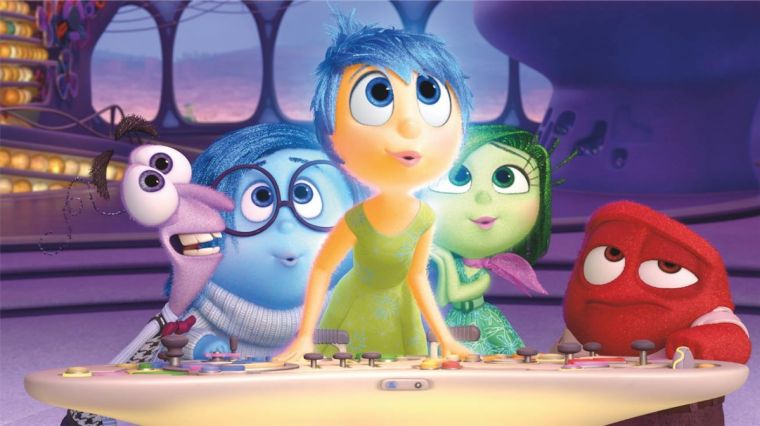God, mental health, and the goodness of sadness: A lesson for the church
Christian faith and mental health are not always imagined as happy bedfellows. Some outside the church regard belief in God itself as a kind of mental illness or delusion, while some inside it dismiss modern talk of 'wellbeing' as narcissistic navel-gazing. Others may lack the language or emotional intelligence to engage with mental health, either awkwardly ignoring it or over-spiritualising it.
So when I heard that a Christian conference, for which I was on the team, would be tackling mental health, I had the natural caution: could it be done well? But I was also excited about this embrace of what is a vital aspect of all our lives.
'It's never too late to change your mind' was the title for the Big Weekend 2018, the annual student/young professional conference run by the discipleship charity The Navigators UK. Like the previous year's, the event focused on a holistic, 'whole-life' vision: it engaged not simply 'mental illness' but the mind in general – the seat of our emotions, our desires and imaginations – and its connection with Christian faith.

It can be common in the Church today to divide up aspects of the human being: a rational mind, a physical body, and an immortal, immaterial soul, for example. Though Scripture speaks of these elements, the conference speaker Ros Boydell emphasised that the Hebraic, biblical notion of the 'person' rejects the notion that we can be so easily partitioned. We can't think of 'mental' problems as totally distinct from 'spiritual' or 'physical' ones. Rather, we are organic creatures, and all aspects of our being are organically interconnected.
We were created with minds, with a capacity for intellect, imagination, and emotional awareness. To speak of 'mental illness' then is to speak of struggle in those essential arenas, and these barriers to flourishing must be taken seriously. But to do this the complexity of the whole person must be embraced, and deep pain cannot just be ushered away with medication, or any kind of 'quick fix'.
Moreover, mental ill-health affects everyone, whether in subtle or dramatic ways, even or especially those who believe they have no issues. We're all fragile, fragmented, in need of help.
Continuing this holistic theme, the conference seminars explored emotional wellbeing, using the characters drawn in the Disney-Pixar hit animation Inside Out: Joy, Sadness, Anger, Disgust and Fear. Each seminar reflected on what flourishing might look like for each emotion and the real-life struggles we can face when those emotions are disordered.

The profound and moving insight of Inside Out, embraced at the Big Weekend, was that each emotion has its role to play in a healthy mind, and that rejecting one, refusing to engage it, does damage to a person. So we may think ourselves virtuous by suppressing vocal anger, but our outrage may then manifest itself in even more insidious, harmful ways. How do the dynamics of faith relate to fear and anxiety? Christians believe in the gift of 'joy', but what about the gift of 'sadness'? How can attention to spiritual disciplines of church tradition help restore a balanced, healthy mind?
The seminar I joined on 'sadness' (which is not the same as depression) was particularly profound: it reflected on the deep value given to sadness in Scripture, and how it relates to God. After all, 'Jesus wept' when his beloved Lazarus died (John 11:32-37), so what was happening there? He told his followers that those mourn would be 'blessed...for they will be comforted' (Matthew 5:4). Sadness is a natural part of engaging with a broken world. We're called to embrace it but also find the comfort that comes through consolation. Mourning actually brings human beings and God together, in an intimate, sober reckoning with reality and implicitly, a celebration of the good that we lost. It's a passive emotion, not obviously 'useful' – but we couldn't live without it.
If I said I left the weekend on a spiritual or emotional 'high', I would be lying. I also can't say I left armed with answers or neat techniques to heals one's mental state. But in this case, that seemed fitting and right. One of the great problems when it comes to engaging the human mind is that even to those who make its study their life's work, so much is unknown. We hardly know each other, let alone ourselves. So simple answers can never really do. But one thing might take us far: presence.
The whole gathering was in itself an embodiment of presence. First, being present to one another, listening, sharing pain and joy, exploring how to help each other. In an ever-distant, mediated and illusory social-media culture, that's a gift. Second, being present to 'mental health': choosing not to ignore a difficult issue but face it honestly, to seek God with it. Little good can come from ignoring what's hard. We're prone to 'problem-solve' our obstacles, but sometimes we need more. Sometimes we just need to feel, whether it's sadness or rejoicing, love or lament. The weekend, it should be said, was also clear about the value of professional help, whether counselling, CBT or medication: it shouldn't be stigmatised but wisely sought as we would with any other injury.
Self-indulgence is a real danger of course, and over-attention to one's mental workings can end up inhibiting them. But as technological advancements leave us more familiar with emojis than real emotion, erring on the side of proper self (and other)-understanding seems important. Or as the Greeks put it, 'know thyself'.
You can follow @JosephHartropp on Twitter
A new Navigators study resource on this theme, 'Inner.Life', is coming soon.











